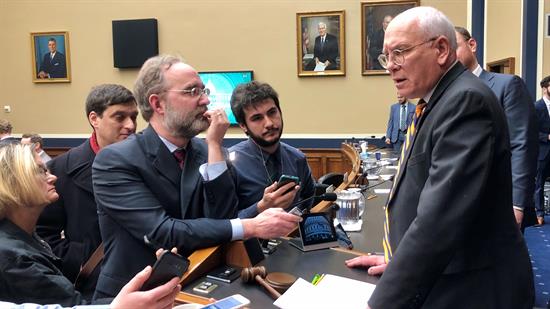- Home
- About
-
Constituent Services
- Academy Nominations
- Community Project Funding
- Congressional Art Competition
- Congressional App Challenge
- Congressional Commendation
- Event Invitation
- Grants
- Help with a Federal Agency
- Internships
- IRA Clean Energy Consumer Benefits
- Know Your Rights: Immigration
- Request a Meeting
- Request Surplus Books
- Presidential Greeting
- Visit Washington D.C.
- Issues & Legislation
- News
- 20th District
- Contact

Press Releases
Tonko Announces $1.15 Million for Safer Capital Region StreetsFederal grant enables Capital District Transportation Committee (CDTC) to develop comprehensive safety action plan
Albany,
February 1, 2023
Tags:
Transportation
ALBANY, NY—Congressman Paul D. Tonko announced today that the Capital District Transportation Committee (CDTC) has been awarded a $1,150,000 grant through the U.S. Department of Transportation’s (DOT) Safe Streets and Roads for All (SS4A) Grant Program to develop a comprehensive safety action plan for the Capital Region. The SS4A program was established by the Bipartisan Infrastructure Law (BIL), which Congressman Tonko proudly supported. “As we continue to implement the historic investments of the Bipartisan Infrastructure Law, the safety of our roads and highways must be a top priority,” Congressman Tonko said. “Across our Capital Region, drivers, public transit riders, cyclists, and pedestrians depend on safe streets to connect with their jobs, their schools, and their communities. I’m proud of my push to secure funding that improves the safety and reliability of our Capital Region transportation infrastructure, and I’ll continue working to make our roadways safe for all who call our region home.” Capital District Transportation Committee Executive Director Sandy Misiewicz, AICP, said, “Implementing safe mobility options in the Capital Region is one of our top transportation priorities. This grant funding will allow us to expand our Local Road Safety Action Plan into a regional Vision Zero strategy that will work toward eliminating fatalities and serious injuries, support complete streets, and improve the safety of our most vulnerable transportation system users, often pedestrians and bicyclists in disadvantaged communities. We thank USDOT for this award and look forward to working with our state and local government partners.” The CDTC applied for this grant in partnership with the Cities of Albany, Saratoga Springs, Troy, and Watervliet, as well as the Village of Green Island. This significant funding will provide supplemental support for Vision Zero, a safe systems and complete streets plan for New York’s Capital Region. As part of this program, the CDTC will consult with expert analysts, engineers, and community contacts to prioritize locally specific safety countermeasures, strategies, and actions to eliminate traffic fatalities and serious injuries. The project will culminate with a regional Vision Zero Plan containing a comprehensive list of locations prioritized for specific actions to enhance traffic safety based on relevant roadway and intersection characteristics found to contribute to serious accidents. The Bipartisan Infrastructure Law established the Safe Streets and Roads for All Grant Program with $5 billion in appropriated funds over a five-year period. The SS4A initiative provides grants to regional, local, and Tribal projects to prevent roadway deaths and serious injuries. |
